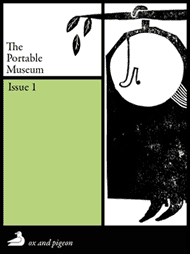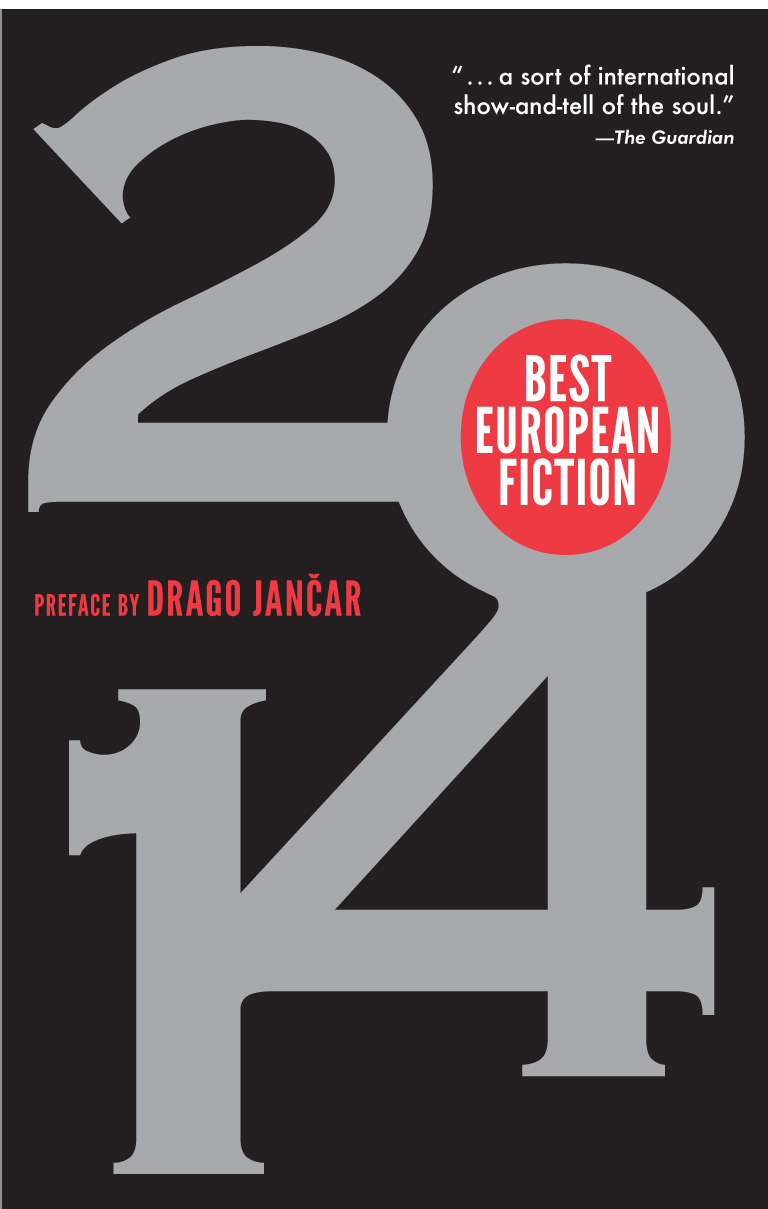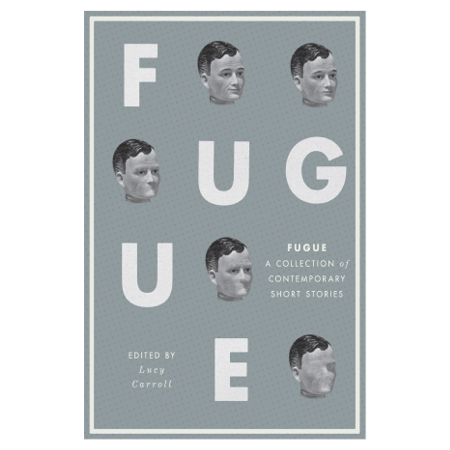The Portable Museum (Ox and Pigeon)
-Reviewed by Martin Macaulay-
The Portable Museum is a literary journal curated by Ox and Pigeon, a digital publisher keen to use the electronic format to share stories in translation from around the world. Four short stories furnish the first edition, each originally published in Spanish from Latin America or Europe. This makes for a compact and fairly rapid read, but the texts included here have real depth and reward the reader with each return visit.

Fabio Morábito’s ‘The Mothers’ is a dazzling beginning to the collection. A dream-like retelling of a rite of passage that twists the archetypal mother, at least for the period of June, into a savage seeking refuge up trees and hiding on balconies. During this month they are wild and naked as they feverishly hunt their prey: ‘an office worker, a manual labourer’. The mothers descend from their hideouts at dusk to rest in doorways, allowing their children to nurture them, clean their wounds and feed them. The cared-for temporarily become the carers. The role of the mother is displaced and they are portrayed as creatures both feral and uncontrollable. Yet throughout, they retain the silent respect of society as this ritual passes. Originally published in 1989, ‘The Mothers’ is a compelling fable worthy of (re)discovery.
By contrast, ‘Nazi Girl’ by Álvaro Bisama first appeared in 2010, but is a fine complement to the opening short story. This is a tale of a girl brought up by Nazi fetishist parents as she enters adulthood, set against the background of the Pinochet regime in Chile. At face value it is a tale of a girl, struggling to fit in, who latches on to the fanatical element instilled into her by her parents. Dabbling with Nietzschean philosophy, she asserts her own world view, proudly able to set herself apart from her classmates. As she matures, BDSM and Nazi role-playing take a stronger hold, but the distinction between consensually-inflicted pain and the suffering of fellow countrymen and women is brought sharply into focus. Despite glimpses of black humour – ”Soon everyone forgot about my reputation as a Nazi” – the inescapable brutal reality of the past is never too far away.
In ‘The Japanese Garden’ by Antonio Ortuño, Jacobo seeks to find a lost companionship of a different sort. As a child, his father hired a girl, Fabiana, to keep him company and spend the night with him. When his father passes away his guardian uncle decides that this irregular practice should end too. After a while Fabiana moves out of the neighbourhood and Jacobo loses all contact. Despite the passing years, he can’t stop thinking about her. When his father’s estate passes to him he decides to find out what became of Fabiana. ‘The Japanese Garden’ raises some interesting points around the currency of friendship, and the relationship between artifice and happiness.
Finally, this small collection closes with Enrique Vila-Matas’ ‘Loves That Last a Lifetime’. Ana María is a high school teacher who lives with her grandmother. She is trying to deliver bad news to her grandmother; the story revealed to us through Ana María’s inner and external dialogue. A thread of unrequited passion pulls the characters together, but ultimately it’s the weight of history and lasting impact of colonialism that tears at individual responsibility.
Each short has much to offer. One story may share a theme with another – fascism, family, unreciprocated love – but the thing that cuts across them all is the calibre of writing. Disappointingly it features an all-male cast, but this does not detract from the final product. If The Portable Museum is to thrive in this digital age, with ever-increasing traffic and monetary devaluation of artistic endeavour, it needs to position itself apart from the others. The voices of literary magazines and journals can get drowned out, lost within the electronic chatter and noise. Fortunately, this journal speaks loudly and with a clarity that should allow it to be heard above many others. For only a couple of quid, you get four outstanding stories. The second issue is due in the first quarter of 2013 and I’m looking forward to its arrival already.



